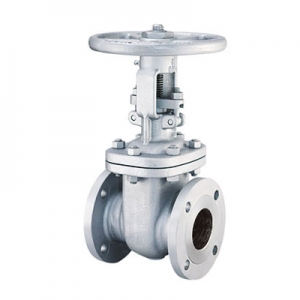It cannot be overstated that logistics management for projects involves the most manageable. Identifying and coordinating the specific requirements for transporting massive, heavy and extremely valuable freight for projects can be complex. But, project logistics, from planning and execution, makes a complex transportation plan manageable.
The logistics approach begins with identifying the main phases of transportation, handling and delivery; and ensures that each phase stays on track. From rail, ocean container, inland truck and even air cargo services, project logistics combines many different means of transport to ensure that project materials arrive on time, and in the same condition.
Understanding Project Logistics
Project Logistics is the dedicated planning, management, and movement of over-dimensional, heavy weight, or complex equipment (frequently for industrial or large industry), sometimes even large previous materials, equipment and other high-value components. Whereas your typical transport or shipping line will pick up a load or shipment, project cargo logistics requires a heightened amount of plan and coordination, as there are more considerations to manage in the logistics process, from load weighting and abiding by weight measurement, route selection (due to bridge weight, etc.), customs restrictions if required, and handling of the shipment.
The objective of project cargo logistics is to ensure that we can deliver each item to the project site safely, on time and budget. Every shipment is unique, and specifically may need its own form of packaging, method of transporting, appropriately chosen vehicle, and means of movements.
Key Components of Project Cargo Logistics
1. Planning and Risk Assessment
Proper planning is the backbone of successful project logistics. Very detailed risk assessments highlight any risks related to delays, damage to the products, or compliance, before they occurred. Further, planning builds on these risk assessments and establishes innovative solutions, consideration of alternative modes of transport, and identifying the most efficient routes for freight road services and suitable carriers in relation to services on air cargo.
2. Cargo Handling Procedures
Cargo handling is arguably the most critical consideration in project cargo logistics. Heavy or oversized cargo is typically loaded, secured and offloaded with special equipment (cranes, forklifts, lifting frames, etc.). It is all about safety; and at each stage of cargo handling, all applicable safety practices must be followed.
3. Transport Mode Selection
The correct mode of transport will depend on the size, weight, urgency, and destination (to) of the cargo. Large industrial machinery may travel by road freight services for short distances, while components that are time-sensitive could be transported by air cargo services. Alternatively, sometimes a combination of modes is utilized to achieve the most efficient transport methods.
4. Customs and Compliance
Customs clearing is one more important factor involved in project cargo logistics. Every shipment must meet international trade regulations, documentation requirements, and local customs laws... one little mistake could cause a delay, hefty fines, or worse yet, cargo confiscation.
Air Cargo Services in Project Logistics
In many cases, air cargo services are a first choice when speed is required. Project managers often engage air freight for moving urgent components, spare parts or delicate items that can be easily damaged if handled too many times.
Some other advantages of air cargo services for project logistics are:
- Speed- delivery can be in days instead of weeks.
- Reliable- air cargo services have very high on-time variability.
- Security- more security is provided for high-value or sensitive cargo.
Although air cargo services usually cost more than ocean or land, they are essential for time-critical projects that could incur high cost overruns for delays.
Road Freight Services in Project Logistics
Road freight services are a very flexible and cost-effective way of handling project cargo over shorter to medium distances. Road freight also has the benefit of door to door delivery and the accessibility of onto many locations that do not have air or sea transportation routes.
In project cargo logistics, road freight services are widely used to :
- Move heavy machinery from ports to inland project sites
- Deliver several shipments over a period of time supporting project timelines
- Use specialized trailers or vehicles to move oversized cargo.
The adaptability of road freight services allows them to support both standalone deliveries and multimodal shipping solutions.
Challenges in Project Cargo Logistics
Logistics management for a project brings unique complexities that require specialized knowledge and accuracy:
- Oversized cargo restrictions: There can be limitations on routes where there are bridge height limit, weight limitation, or requirement of permits.
- Coordination between parties: You can seldom rely on one supplier, carrier, and customs agent to take care of your shipment with limited input from you.
- Weather and environment challenges: Inclement weather can delay shipments, which can be especially challenging if you are using a road freight service or sea freight.
Technology in Project Logistics
Technology's integration has changed project cargo logistics. Newer routing systems track movement using advanced analytical software, allowing for the whole of the road freight and air cargo services to optimize route selections before delays are experienced.Articles about range security and driver performance eco programs from air cargo service and road freight transport firms speak to both measures before costs dwindle their ROI results.
Best Practices for Efficient Project Logistics
- Comprehensive Project Planning: Create an order series and plan a timeline for all stages of logistics.
- Mode Integration: combine air freight carriers for urgent shipments with truck freight carriers for inexpensive low-volume haulage.
- Loading Principle: Use equipment designed for loading, securing, and unloading to eliminate risk of damage.
- Vendor Coordination: maintain clear communication with all logistics vendors.
- Compliance Readiness: Completion of all customs documentation prior to load acceptance.
The Importance of Expertise
Logistics for your project is a complex and detailed process that demands industry knowledge, technical skill, and strategic foresight. From match the right carriers for airfreight services to coordinating the most efficient road freight services, an experienced logistics partner can mean that every shipment arrives on schedule and as requested.
Conclusion – Choosing the Right Partner
On big industrial or construction projects, having effective project cargo transport can be the difference between meeting the project deadline or being stuck with a costly delay. Using air cargo services for urgent time-sensitive deliveries and road freight services for heavy or bulk items is a sound and effective way to deliver project cargo. With the correct, planning and execution with the correct skill set, businesses can ensure their cargo travel safely and arrives on time.
At TTC Shipping, we offer fully integrated project transport logistics solutions specific to our customers' needs. Our project cargo transport expertise and our network of vetted partners enables us to offer air cargo services with seamless execution and road freight services that you can depend on, for all projects, small or large.






